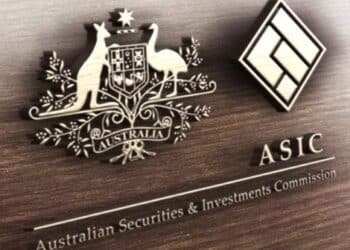It all kicked off with Treasurer Jim Chalmers’ poorly chosen remarks about the Reserve Bank’s influence on the economy, sparking intense debate around planned reforms and potential government interference in rate decisions.
Now, the RBA is feeling the heat like never before – its governor’s every word dissected by a sceptical ruling party, while a hungry crossbench stands ready to exploit any misstep to gain ground in the next election.
This all adds up to a well-orchestrated assault on the RBA’s credibility, an economist observed.
AMP’s Shane Oliver highlighted that the stalling of proposed reforms to split the bank into two boards—one for interest rate decisions and another for governance—is being viewed as a significant concern. However, he argued, “it is not.”
Just three weeks ago, the government launched a blistering attack, accusing the RBA of “smashing the economy” and “punching itself in the face,” casting serious doubt on its decision making. The Coalition subsequently withdrew its backing for the RBA reforms, while the Greens introduced “unrealistic demands” in exchange for their vote—demands that, as Oliver pointed out, contradict their support for strengthening the RBA’s authority, as they simultaneously called for the Treasurer to impose a rate cut, a move that would undermine that very authority.
“It’s been an unfortunate development and I think all over nothing,” Oliver said.
He argued that the proposed RBA split is the weakest recommendation to emerge from the review into the bank. In fact, Oliver, a seasoned economist, warned that a two-board system could lead to a takeover by “egotistical economists”, threatening to overshadow the Reserve Bank and skew its decisions.
“There was no evidence provided to suggest that an independent rate setting board is world best practice. There was no evidence provided that it would lead to better outcomes in Australia. There was no evidence provided that the Reserve Bank has been making major mistakes,” the chief economist said.
“I think the best approach is to call it quits and work in a bipartisan way to strengthen the process of appointing board members to the existing board in the future.”
Turning to the government’s new-found enthusiasm for macroeconomic matters, Oliver urged them to tread carefully.
On Thursday, Prime Minister Anthony Albanese added his voice to those questioning the RBA’s credibility, boldly asserting that inflation’s decline is not merely an artificial result of the government’s cost-of-living measures, countering the governor’s statement that it is.
“I am not sure where the PM is coming from,” Oliver said, urging the government to leave the debate to economists.
He suggested that the government’s involvement is more about deflecting attention than fostering genuine discourse.
“It’s trying to shift attention from itself to other parties. It’s quite normal for governments to blame others and not themselves,” the economist said.
“The reality is that the basic problem with inflation has been that there is too much money being pumped into the economy a couple of years ago. It’s not the fault of business, it’s not the fault of workers, or the bank, but the RBA has to clean up the mess.”
The RBA’s mission is clear – rein in inflation, and to do that, they must “sound tough”, according to Oliver. While there’s room for debate about whether they’ve done enough, he emphasised that their credibility should remain beyond reproach.
“Having the government enter that debate is not particularly helpful,” Oliver said.
Reflecting on the “tremendous” amount of pressure the RBA and its governor are under, Oliver said Michele Bullock has done “really well” to keep her cool and steer clear of political discourse.
“All credit to the Reserve Bank in difficult circumstances,” he said. “We’re in the run-up to an election and the RBA is the political football as political parties position themselves for the election. The Coalition has probably been the cleanest of the lot, but Labor and the Greens … it looks to be like they’re going into campaign mode.”
Looking forward, Oliver said: “I think the bank will do what it needs to do.”
He added that the political winds are blowing in Labor’s favour, making a pre-election rate cut likely, which proves the current uproar is largely unnecessary.








I disagree with Shane’s view as the RBA is completely disconnected from Middle Australia and is indeed smashing up the economy. To create misery is not the task of the RBA.
Its economists have been left behind by the markets and do not know what to do.
Inflation has fallen hard yet we get this nonsense rhetoric from the Governor.
If there is not a rate cut in November there will be one directed by the Treasurer and the Governor will be sacked as she is not repeat not acting in the best interests of the people of Australia.
You actually have to take account of the opinions of others rather than RBA economists who have to toe the party line.